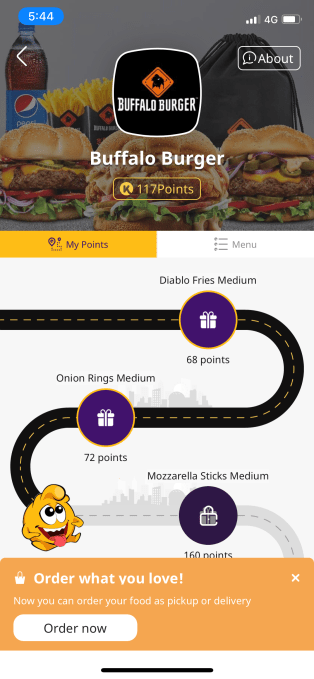Gig workers and warehouse workers have become essential in a pandemic-ravaged economy. In California, a law went into effect earlier this year that makes gig workers independent contractors. Meanwhile, Amazon warehouse workers in Alabama are actively seeking to form a union to ensure better protections at the workplace.
At TC Sessions: Justice, I spoke with Gig Workers Collective co-founder and organizer Vanessa Bain, The Congress of Essential Workers founder and former Amazon warehouse worker Christian Smalls and National Council for Occupational Safety and Health Co-Executive Director Jessica E. Martinez about what’s next for gig workers and tech’s contractor workforce, and what battles lie ahead for these essential workers.
On the Amazon union drive
Amazon warehouse workers in Bessemer, Alabama are in the midst of a historic union drive. Smalls, who was fired from his job at an Amazon warehouse in Staten Island last year after speaking out about the lack of personal protective equipment, told me he recently spent a few days in Bessemer.
The building opened up when Coronavirus started. When New York City became the epicenter, that’s when Bessemer facility opened up. So the union got a head start on talking to workers. So that’s a gem for anybody or any union that plans on trying to unionize the building — that you have a facility in your community that’s about to open up, when opening, that’s the best time to connect with workers. That’s what happened last year. And as a result, the workers had seen what happened to the workers that were unprotected and they don’t want that. They want better for themselves. And they rightfully desrve that, especially in Alabama. It’s a right to work state, a state with no state minimum, obviously a red state. So I think it’s a lot of intangibles against them. But these workers now see the window of opportunity for change systemically. (Timestamp: 4:40)
Meanwhile, President Biden recently came out in support of the unionizing efforts in Bessemer.
I would hope that he is a man of his word. He’s a pro-union guy. He ran his campaign off of that, saying he’s a union guy and unions need to be strong, and he supports unions all the way. It was powerful to see that the President, the man, the highest plateau in the country, support the union. (Timestamp: 13:11)
[…] But once again, like Vanessa said, I don’t put all my eggs in that basket either. I just want to hold him accountable. Make sure that, you. know, we see this all the way through to the end. Even if Alabama is not successful, if we were to try again, in other locations, other parts of the country, that we have the support of the highest power in the country, that is the most powerful thing that will resonate with workers. So it’s good to see that it’s happening now. (Timestamp: 14:17)
- Amazon warehouse workers to begin historic vote to unionize
- Amazon faces lawsuit alleging failure to provide PPE to workers during pandemic
- NY AG sues Amazon over treatment of warehouse workers
On the effects of Prop 22
Already, Prop 22 has affected industries outside of tech. In December, supermarket chain Albertsons began replacing delivery drivers with contractors and hundreds of employees in California were swapped for DoorDash workers, Bloomberg reported. Meanwhile, tech companies have spoken about implementing Prop 22-like legislation in other parts of the country. Martinez described how some California residents who voted to pass Prop 22 thought they were supporting workers for better access to rights.
And unfortunately, you have workers who have possibly died. We have a California rideshare driver who died from COVID-19 last month. His independent classification means his family will receive no workers’ compensation. That is a huge impact to workers and the reality of how it impacts day to day life for workers and in the midst of a pandemic. So I share that, because Prop 22 sets the tone, again, for what could happen nationally. (Timestamp: 17:00)
Meanwhile, Bain said she sees the passing of Prop 22 as a failure of “our entire structure of economy.”
And we have really allowed tech to run rampant under this pretense that somehow it’s innovative, and especially within the gig economy. I mean, it’s the opposite of innovative, right? Like it’s feudalism on your phone, right? It’s 1-800 dial listserv. So it’s like, they’re not doing anything new that justifies creating an entirely different classification of labor than existed before, which is what Prop 22 did, right? It literally created this category of marketplace contractor that retains neither the protections of an independent contractor nor an employee. And allowing, you know, companies to write their own laws in this way is a systemic failure. (Timestamp: 18:57)
- An even bigger battle for gig worker rights is on the horizon
- Gig workers in San Francisco are mostly people of color and many are immigrants, according to survey
- Ex-Postmates VP of global public policy on the future of gig work
On the PRO Act
There’s legislation in the U.S. Senate right now that aims to make it easier for workers to organize and form unions in the country. The Protecting the Right to Organize Act seeks to change labor laws in favor of giving workers more power.
Bain spoke about the importance of getting the PRO Act across the line in light of the passing of Prop 22 in California.
These things shouldn’t be at the mercy of who happens to be, you know, held to a position. These are things that should be codified and enshrined really in law. And things that should be consistent and stable protections that people can rely on and count on. (Timestamp: 20:22)
Martinez explained how the PRO Act aligns with the work she’s doing at COSH. The organization recently released a national agenda for worker safety and health, along with some recommendations.
We want stronger safety laws, tougher enforcement, including a mandatory emergency standard to prevent the spread of infectious disease. And again, this is federally so if there is an ETS or an emergency [temporary] standard pass, it applies all over and impacts all kinds of workers, stronger protections against retaliation. (Timestamp: 07:53)
Martinez added:
Employers will funnel resources to try to scare tactics to scare workers from organizing, demanding safer workplaces, job security, and so forth. [The agenda] also includes workers are included in all policy decisions. We believe strongly that workers, more than anyone, understand the job, know the solutions and controls to health and safety issues, and also equity and Inclusion to end the misclassification and better protections for temporary gig workers. Paid sick and family leave for workers also worker centered health protocols, including health for high risk workers and getting access to vaccines. And we want to confront the workplace effects of climate change. Finally, also prevent chemical catastrophes and harmful exposure. […] With that said, this is not working in isolation. It works in collaboration with laws, we’re hoping that will pass, such as the PRO Act, allowing workers to gain bargaining power when organizing, essentially giving them the ability to negotiate with the employer get access to benefits again, such as some job security paid sick leave workers comp and so forth. (Timestamp: 8:23)
You can read the entire transcript here.



